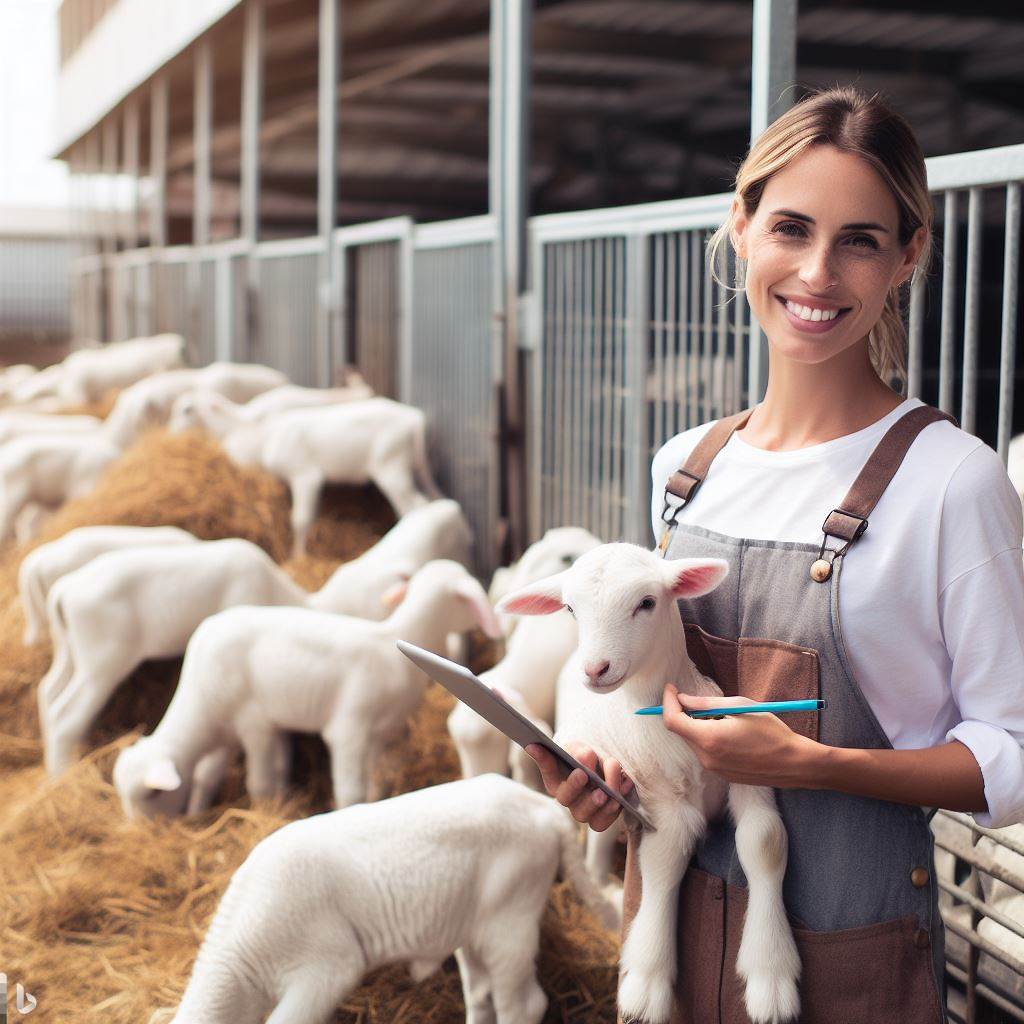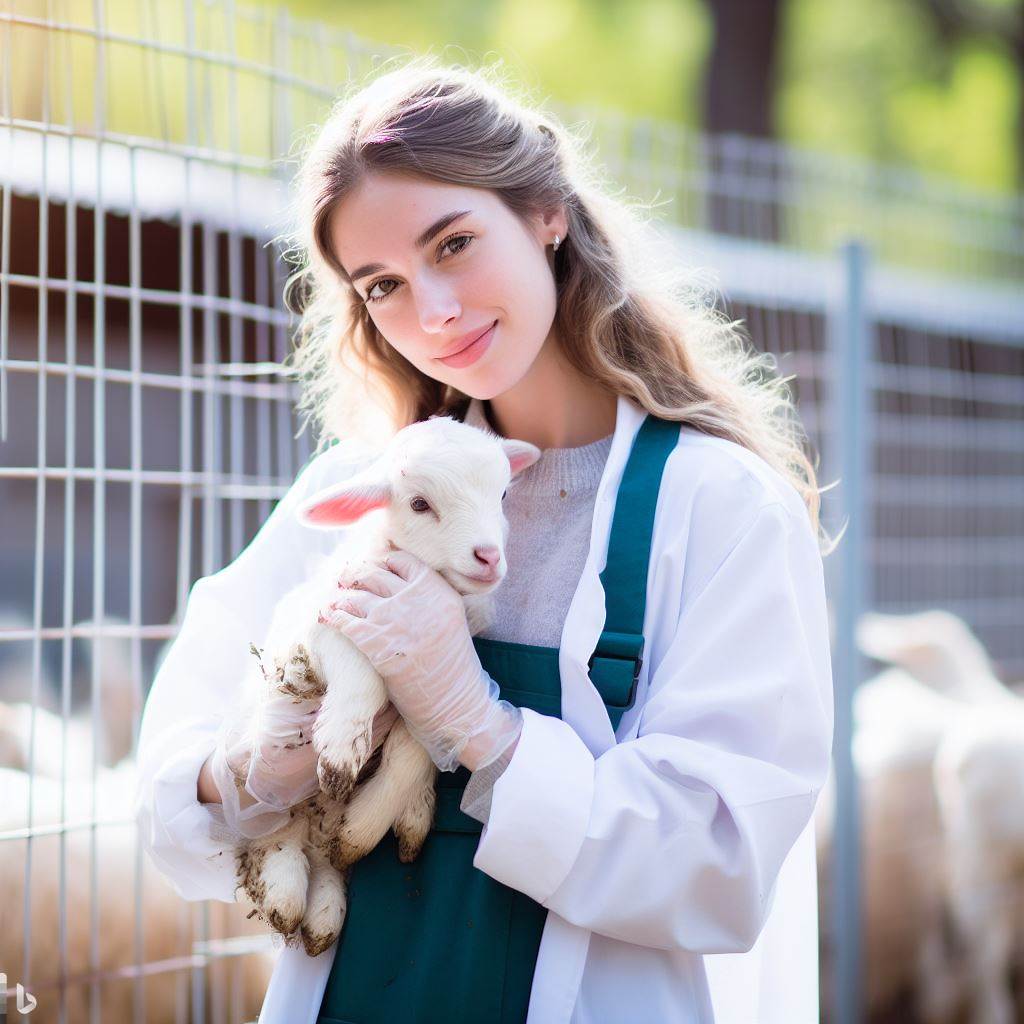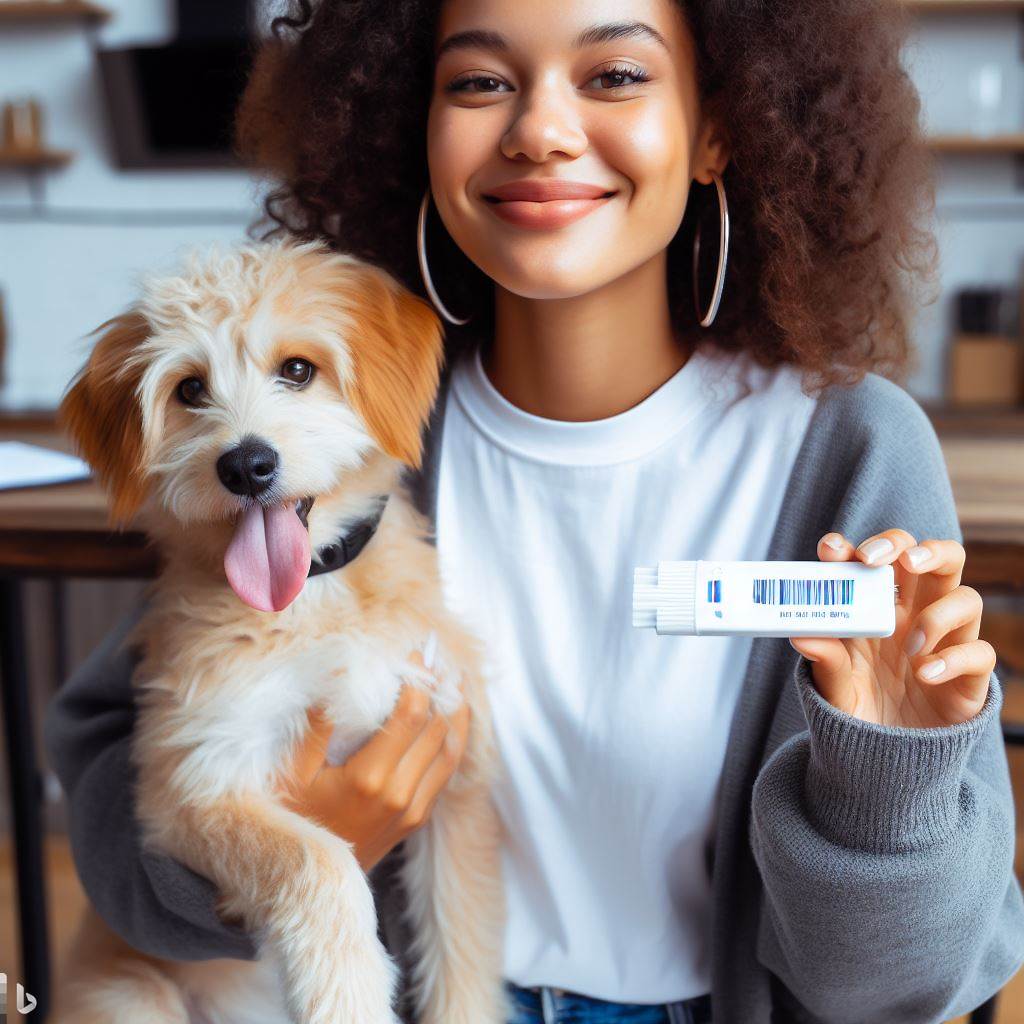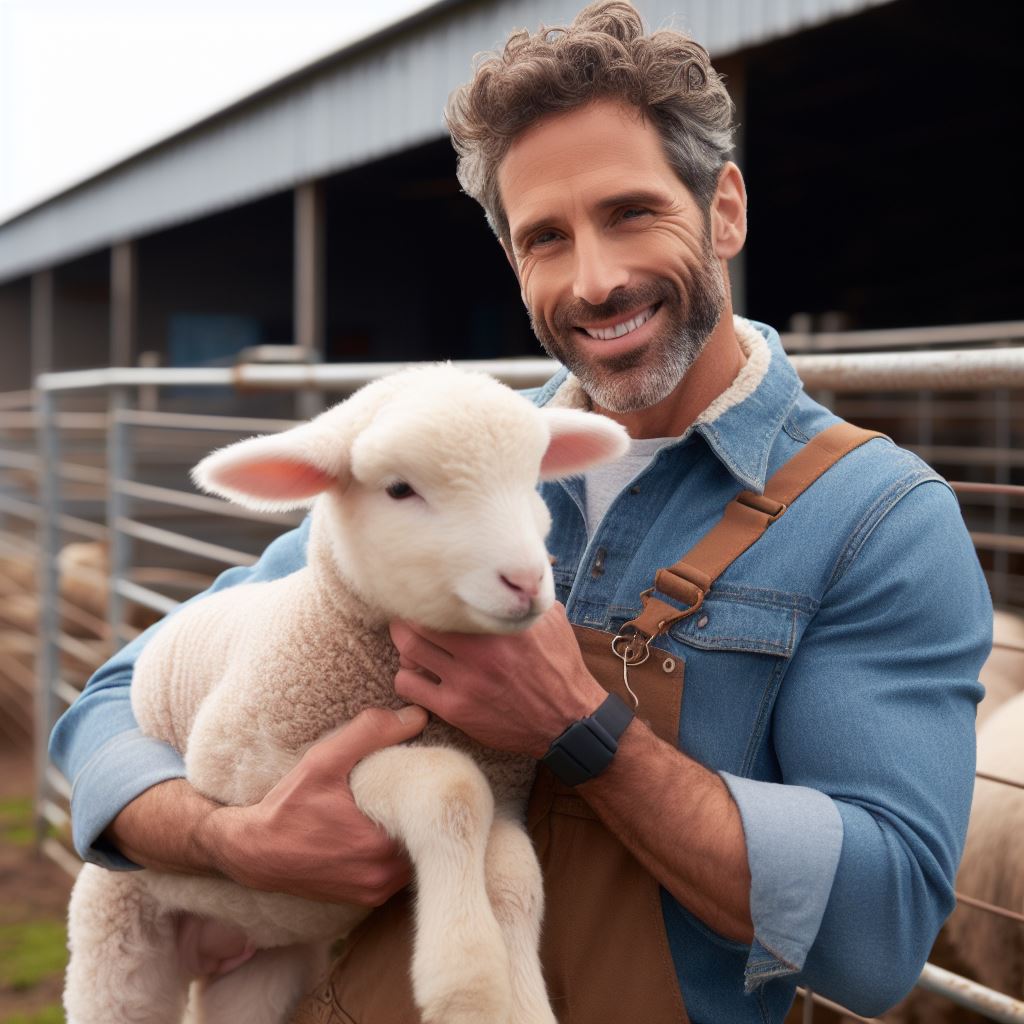Introduction
If you are interested in animal breeding, you need to know about the licenses and certifications required in the US.
These are important for ensuring the health, welfare, and quality of the animals you breed.
They also protect you from legal issues and help you establish your reputation as a professional breeder.
In this blog post, we will guide you through the process of obtaining the necessary licenses and certifications for animal breeding in the US.
We will cover the following topics:
- The different types of animal breeding licenses and certifications and their benefits
- The eligibility criteria and application procedures for each license and certification
- The fees, renewal, and expiration dates for each license and certification
- The best practices and tips for maintaining your licenses and certifications
By the end of this post, you will have a clear understanding of how to navigate the US animal breeding licenses and certifications system.
You will also learn how to comply with the standards and regulations that govern animal breeding in the US.
Animal Breeding Licenses
A. Definition of animal breeding licenses and their significance
Animal breeding licenses are legal permits that authorize individuals or establishments to engage in breeding animals for commercial purposes.
These licenses hold great importance as they ensure that animal breeders comply with specific standards and regulations, ensuring the welfare and well-being of the animals being bred.
B. Overview of the legal requirements for obtaining an animal breeding license in the US
1. Registration with relevant governmental agencies
In order to obtain an animal breeding license in the US, breeders must first register with the appropriate governmental agencies.
This registration process usually includes providing information about the breeder’s facilities, animal care practices, and compliance history.
2. Compliance with regulations and standards
Breeders must demonstrate compliance with regulations and standards set by the government and local authorities.
These standards typically cover areas such as animal welfare, environmental impact, and proper record-keeping.
C. The benefits of having an animal breeding license
1. Increased credibility and trustworthiness
Having an animal breeding license enhances a breeder’s credibility and trustworthiness among potential customers.
It serves as proof that the breeder follows the necessary procedures and maintains high standards in their breeding practices.
2. Access to breeding programs and opportunities
Animal breeders with a valid license gain access to specialized breeding programs and opportunities.
This allows them to work with specific breeds or participate in programs aimed at improving genetic diversity or enhancing certain traits in animals.
Read: US Breeding Regulations: What New Breeders Must Know
Animal Breeding Certifications
A. Explanation of animal breeding certifications and their importance
Animal breeding certifications are crucial for ensuring the quality and standard of breeding practices.
They demonstrate a breeder’s commitment to ethical and responsible breeding.
Transform Your Career Today
Unlock a personalized career strategy that drives real results. Get tailored advice and a roadmap designed just for you.
Start NowB. Different types of animal breeding certifications
- Breed-specific certifications: These certifications focus on specific breeds and ensure that breeders have a deep understanding of the breed’s characteristics and health considerations.
- General animal breeding certifications: These certifications cover a broader range of breeding practices and may be applicable to multiple breeds.
C. Detailed information on popular animal breeding certifications
- American Kennel Club (AKC) certifications: The AKC offers various certifications for breeders, including the Breeder of Merit program, which recognizes breeders who have made significant contributions to their breeds.
- Certified Professional Animal Breeder (CPAB) certifications: The CPAB certification is a comprehensive program that covers all aspects of animal breeding, including genetics, health, and ethical considerations.
Animal breeding certifications are essential for ensuring the quality and ethical standards of breeding practices.
Whether breed-specific or general, these certifications demonstrate a breeder’s commitment to responsible breeding.
The American Kennel Club and Certified Professional Animal Breeder offer popular and reputable certifications for breeders to consider.
The AKC’s Breeder of Merit program, in particular, highlights breeders who have excelled in promoting the health and well-being of their chosen breeds.
The CPAB certification, on the other hand, provides breeders with a comprehensive understanding of breeding practices, including genetic principles, animal welfare, and responsible breeding ethics.
Finally, animal breeding certifications play a vital role in maintaining the integrity of breeding practices.
They serve as a testament to a breeder’s dedication to producing healthy and well-adjusted animals.
Whether pursuing breed-specific certifications or more general ones, breeders should consider the importance of obtaining these credentials to ensure the highest standards in animal breeding.
Read: Financial Prospects of Animal Breeding in the USA
Steps to Obtain Animal Breeding Licenses and Certifications
Achieving the necessary licenses and certifications for animal breeding in the United States requires a systematic approach.
By following these steps, individuals can navigate through the process smoothly and ensure compliance with legal requirements.
A. Research and gather information
Begin by conducting thorough research on the specific requirements and regulations related to animal breeding in your state or jurisdiction.
Collect information on the relevant laws, agencies, and authorities involved in the licensing and certification procedures.
B. Determine the specific licenses and certifications needed for the intended animal breeding activities
Based on your research, identify the specific licenses and certifications that are required for the types of animal breeding activities you plan to undertake. Make a list of these credentials for future reference.
C. Fulfill necessary requirements
It is essential to meet all the requirements set forth by the regulatory bodies before applying for licenses or certifications.
This typically includes:
1. Education and training
Acquire the necessary knowledge and skills by attending accredited programs or courses related to animal breeding.
These can include courses on genetics, animal husbandry, and reproductive biology.
2. Health and safety standards
Demonstrate compliance with health and safety standards to ensure the well-being of both animals and breeders.
This may involve implementing proper sanitation practices, disease prevention measures, and maintaining suitable living conditions for the animals.
3. Facility inspections
Prepare your animal breeding facility for inspections by regulatory agencies.
Transform Your Career Today
Unlock a personalized career strategy that drives real results. Get tailored advice and a roadmap designed just for you.
Start NowEnsure that the facility meets all the required standards related to infrastructure, hygiene, and animal welfare.
D. Submit applications and pay associated fees
Once all the prerequisites are met, submit the required applications for the desired licenses or certifications.
Be prepared to pay the associated fees, which may vary depending on the type of license and jurisdiction.
E. Wait for approval and licensure/certification
After submitting the applications, the waiting period begins.
Regulatory bodies will conduct a thorough assessment of your qualifications, facility, and compliance with regulations.
This process involves reviews, verification checks, and possibly site visits.
During this stage, it is crucial to be patient and prepared to provide any additional information or documents requested by the regulatory authorities.
It is also advisable to maintain open communication with the relevant agencies to stay informed about the progress of your application.
Once your application is approved, you will receive the animal breeding license or certification.
This official documentation will validate your ability to legally engage in animal breeding activities.
Keep in mind that obtaining an animal breeding license or certification is not a one-time task.
In most cases, it requires periodic renewals to ensure ongoing compliance with evolving regulations and standards.
Stay updated with any changes in the legal requirements and plan for timely renewals to continue your breeding activities uninterrupted.
By following these steps and staying proactive in meeting the necessary requirements, aspiring animal breeders can navigate the complex process of obtaining licenses and certifications successfully.
This will not only establish their legitimacy in the field but also promote responsible and ethical practices in animal breeding.
Read: Ethical Practices for Animal Breeders: US Standards
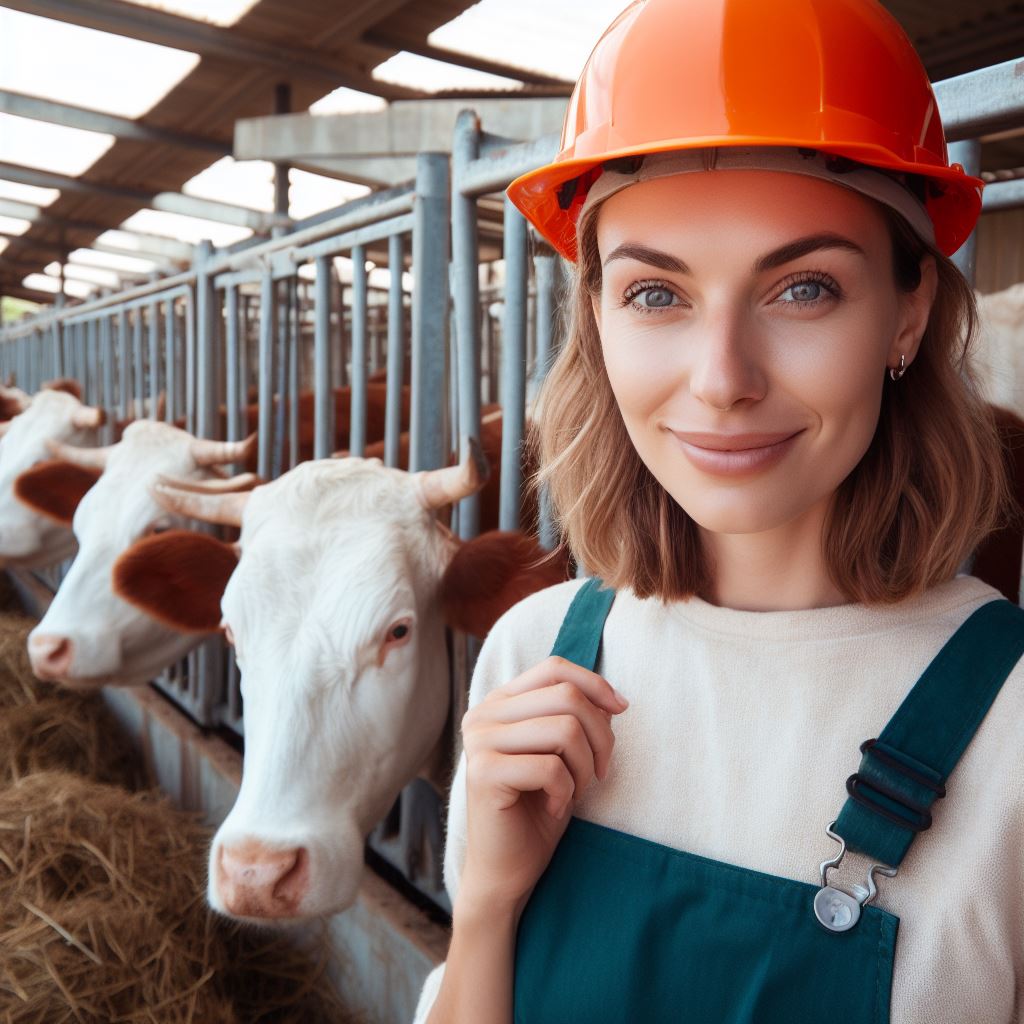
Delve into the Subject: Farming Education & Training Programs in the USA
Maintaining and Renewing Animal Breeding Licenses and Certifications
A. Importance of adhering to regulations and standards
- Consistently following regulations and standards ensures the welfare and safety of animals.
- Adhering to requirements also helps to maintain a positive reputation in the industry.
- Failure to comply with regulations can result in legal consequences and damage to professional credibility.
B. Ongoing education and professional development
- Staying updated on the latest advancements in animal breeding techniques is crucial.
- Continuing education programs can provide valuable insights and knowledge to improve breeding practices.
- Engaging in professional development demonstrates commitment to ongoing improvement and learning.
C. Regular inspections and compliance checks
- Licensing and certification bodies conduct regular inspections to ensure compliance.
- Compliance checks help to identify any issues or improvements needed in breeding facilities.
- Maintaining a clean and well-maintained facility is essential to pass inspections.
D. License and certification renewal processes
- Renewal processes vary depending on the licensing or certifying body.
- Typically, individuals must submit renewal applications, pay fees, and provide updated documentation.
- It is essential to keep track of renewal dates to avoid any lapses in licensure or certification.
E. Consequences of non-compliance or failure to renew
- Non-compliance or failure to renew licenses and certifications can result in fines or penalties.
- In some cases, individuals may lose their ability to continue breeding animals legally.
- Without valid licenses or certifications, it becomes challenging to operate a legitimate breeding business.
Maintaining and renewing animal breeding licenses and certifications is vital for responsible breeders.
Adhering to regulations and standards ensures the well-being and safety of animals, as well as maintaining a positive reputation in the industry.
Staying informed on the latest advancements through ongoing education and professional development is crucial.
Transform Your Career Today
Unlock a personalized career strategy that drives real results. Get tailored advice and a roadmap designed just for you.
Start NowEngaging in continued learning allows breeders to improve their techniques and stay up to date with industry best practices.
Regular inspections and compliance checks help licensing and certifying bodies ensure that breeders meet all necessary requirements.
Clean and well-maintained facilities are essential for passing these inspections and maintaining the necessary licenses and certifications.
The process of renewing licenses and certifications varies depending on the specific body.
Breeders must familiarize themselves with the renewal process, including submitting applications, paying fees, and providing updated documentation.
Keeping track of renewal dates is crucial to avoid any lapses in licensure or certification.
Non-compliance or failure to renew can have severe consequences for breeders. Fines or penalties may be imposed, and individuals may even lose their ability to breed animals legally.
Operating without valid licenses or certifications not only jeopardizes the breeder’s business but also raises ethical concerns.
Essentially, maintaining and renewing animal breeding licenses and certifications is of utmost importance for responsible breeders.
By adhering to regulations, seeking ongoing education, passing inspections, and completing renewal processes, breeders can continue their work while upholding the highest standards in animal welfare and professionalism.
Read: Day in the Life: Following a US Animal Breeder
Conclusion
In this blog post, we explored the topic of navigating US animal breeding licenses and certifications.
We discussed the importance of obtaining proper licenses and certifications for animal breeding.
Additionally, we provided information on the various types of licenses and certifications available in the US.
We highlighted the benefits of having these credentials, such as increased credibility and networking opportunities.
We also addressed the potential challenges and requirements associated with acquiring animal breeding licenses and certifications.
Throughout the post, we emphasized the importance of complying with regulations and ethical breeding practices.
We encourage our readers to explore the specific licensing and certification requirements for their own animal breeding endeavors.
It is crucial to stay informed about local, state, and federal regulations to ensure legal and responsible breeding practices.
By obtaining the necessary licenses and certifications, breeders can enhance their expertise and professional reputation.
Transform Your Career Today
Unlock a personalized career strategy that drives real results. Get tailored advice and a roadmap designed just for you.
Start NowAs responsible breeders, it is our duty to prioritize the health and welfare of the animals in our care.
We hope this blog post has provided valuable insights and guidance for navigating the complex world of animal breeding licenses and certifications.
If you are interested in pursuing a career or hobby in animal breeding, we encourage you to take the necessary steps to obtain the required licenses and certifications.
Together, let’s work towards ensuring the wellbeing of animals and the promotion of ethical breeding practices.
[E-Books for Sale]
The Big Book of 500 High-Paying Jobs in America: Unlock Your Earning Potential
$19.99 • 500 High-Paying Jobs • 330 pages
Explore 500 high-paying jobs in America and learn how to boost your career, earn more, and achieve success!
See All 500 High-Paying Jobs of this E-Book
1001 Professions Without a Degree: High-Paying American Jobs You Can Start Now
$19.99 • 1001 Professions Without a Degree • 174 pages
Discover 1001 high-paying jobs without a degree! Unlock career tips, skills, and success strategies for just $19.99!

